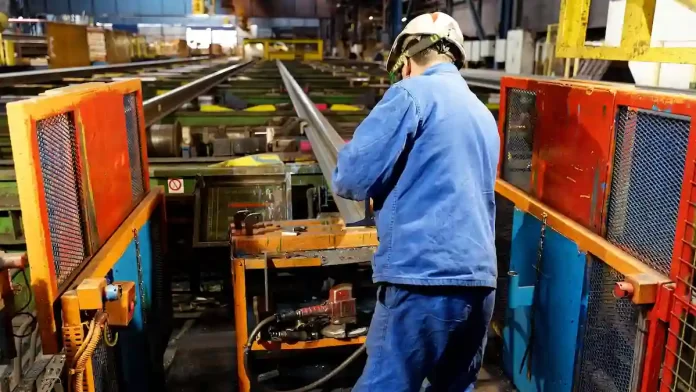Make in India is a Union Government initiative that was launched on 25th September 2014 to facilitate investment, foster innovation, build best-in-class infrastructure, and make India a hub for manufacturing, design, and innovation.
It is one of the unique ‘Vocal for Local’ initiatives that promoted India’s manufacturing domain to the world.
Coordinating Agency of Make in India
‘Make in India’ initiative has significant achievements and presently focuses on 27 sectors under Make in India 2.0. Department for Promotion of Industry and Internal Trade (DPIIT) coordinates action plans for 15 manufacturing sectors, while the Department of Commerce coordinates 12 service sector plans.
Investment outreach activities are done through Ministries, State Governments, and Indian Missions abroad for enhancing international cooperation and promoting both domestic and foreign investment in the country.
In addition to the ongoing schemes of various Departments and Ministries, the Government has taken various steps to boost domestic and foreign investments in India.
These include the introduction of Goods and Services Tax, reduction in Corporate taxes, financial market reforms, consolidation of public sector banks, enactment of four labor codes, improving ease of doing business, FDI policy reforms, other sectoral reforms, reduction in compliance burden, policy measures to boost domestic manufacturing through public procurement orders, Phased Manufacturing Programme (PMP), to name a few.
The series of measures taken by the Government to improve the economic situation and convert the disruption caused by COVID 19 into an opportunity for growth includes Atmanirbhar packages, the introduction of the Production Linked Incentive (PLI) Scheme in various Ministries, investment opportunities under the National Infrastructure Pipeline (NIP) and National Monetisation Pipeline (NMP), India Industrial Land Bank (IILB), Industrial Park Rating System (IPRS), the soft launch of the National Single Window System (NSWS), etc.
National Industrial Corridor Programme
In addition, the Government of India is developing various Industrial Corridor Projects as part of the National Industrial Corridor Programme which is aimed at the development of greenfield industrial regions/nodes which can compete with the best manufacturing and investment destinations in the world.
GoI has accorded approval for the development of 11 Industrial corridors (32 projects) in four Phases. Under Delhi Mumbai Industrial Corridor (DMIC) Project, 04 greenfield industrial nodes have been developed under Delhi Mumbai Industrial Corridor (DMIC).
GatiShakti National Master Plan
Further, PM GatiShakti National Master Plan provides a transformative approach for ensuring multimodal connectivity to various economic zones.
Minimizing disruptions, ensuring quick completion of works with cost efficiency is the guiding principles for the development of infrastructure as per the National Master Plan. Boost in economic growth, attracting investments, and enhancement of country’s global competitiveness, are some of the expected outcomes.
The reforms taken by Government have resulted in increased Foreign Direct Investment (FDI) inflows in the country. FDI inflows in India stood at US $ 45.15 billion in 2014-2015 and have continuously increased since then, and India registered its highest-ever annual FDI inflow of US$ 81.97 billion (provisional figures) in the financial year 2020-21.
Production Linked Incentive Scheme
Keeping in view India’s vision of becoming ‘Atmanirbhar’ and enhancing India’s Manufacturing capabilities and Exports, an outlay of INR 1.97 lakh crore (over US$ 26 billion) has been announced in Union Budget 2021-22 for PLI schemes for 14 key sectors of manufacturing, starting from fiscal year (FY) 2021-22.
With the announcement of PLI Schemes, significant creation of production, skills, employment, economic growth, and exports is expected over the next five years and more.
The activities under the Make in India initiative are also being undertaken by several Central Government Ministries/Departments and various State Governments.
Ministries formulate action plans, programs, schemes, and policies for the sectors being dealt with by them, while States also have their own Schemes for attracting investments.
